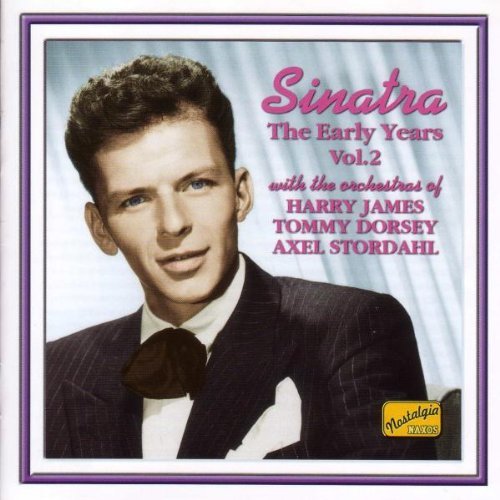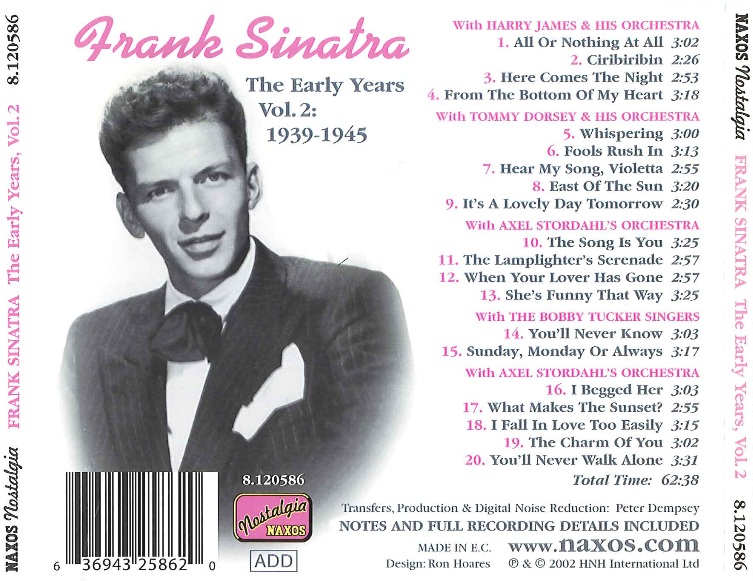Logowanie
OSTATNI taki wybór na świecie
Nancy Wilson, Peggy Lee, Bobby Darin, Julie London, Dinah Washington, Ella Fitzgerald, Lou Rawls
Diamond Voices of the Fifties - vol. 2
Tylko 1000 egzemplarzy!!!
DVORAK, BEETHOVEN, Boris Koutzen, Royal Classic Symphonica
Symfonie nr. 9 / Wellingtons Sieg Op.91
nowa seria: Nature and Music - nagranie w pełni analogowe
Petra Rosa, Eddie C.
Celebrating the art and spirit of music - vol. 3 - Pure
warm sophisticated voice...
Peggy Lee, Doris Day, Julie London, Dinah Shore, Dakota Station
Diamond Voices of the fifthies
Tylko 1000 egzemplarzy!!!
SAMPLER - STS DIGITAL, Buddy Tate, Milt Buckner, Walace Bishop
Jazz Masters - Legendary Jazz Recordings - v. 1
proszę pokazać mi drugą taką płytę na świecie!
Chesky! Niezmiennie perfekcyjny
Winylowy niezbędnik
ClearAudio
Double Matrix Professional - Sonic
najbardziej inteligentna i skuteczna pralka do płyt winylowych wszelkiego typu - całkowicie automatyczna
Frank Sinatra, Tommy Dorsey
The Early Years Vol.2

- Frank Sinatra - vocal
- Tommy Dorsey - trumpet
With The Orchestras of Harry James, Tommy Dorsey and Axel Stordahl "Hailed in many quarters as Bing Crosby’s natural successor, Sinatra became a major “voice” in popular culture during the latter half of the 20th century. As we have frequently been reminded, he had a consistently searching way with lyrics: quite apart from the obvious male magnetism of his performance, the colour of words themselves and the rhythmic pulse of the music were always paramount to him. Having early won idol status he had also, by the late 1940s, become the world’s most popular crooning sex-symbol; and as his histrionic development from average-to-mediocre screen actor in musicals progressed in the 1950s to polished leads in award-winning epics, the image of ‘Swoonlight Sinatra’, the stereotypical image of a lean-and-hungry girls’ pin-up, took second place to his now-legendary verbal impact. Francis Albert Sinatra was born into a poor, immigrant, part-Italian, part-Sicilian family at 415, Monroe Street, Hoboken, New Jersey, on 12th December 1915. During 1931 he briefly attended Hoboken Junior High School before being expelled for rowdy behaviour. Unsuited to further education, he took to working for a living instead, initially in various menial occupations, but at weekends sang with Italian and Irish musical groups at gigs and school dances. He joined The Three Flashes which, augmented to The Hoboken Four, in late 1935 won a Radio City talent contest and signed for a nationwide tour at $50 per week. From 1936 onwards Frank doubled as a journalist while singing and MC-ing at the Rustic Cabin on Route 9-W, Alpine, New Jersey. He was already regularly featured on radio (albeit still not widely known) when he was “discovered” by trumpeter-bandleader Harry James (1916-1983). Frank joined James as vocalist with his newly-formed Roseland Ballroom outfit in Philadelphia in June 1939. An instant hit with female audiences, with James he recorded many popular numbers, including “All Or Nothing At All” (a 1939 Jack Lawrence-Arthur Altman song which provided Sinatra with his first solo US No.1 and first Golden Disc after it was resurrected in 1943) and “Ciribiribin” (originally a vocal showpiece of 1898 by one Alberto Pestalozza and revived by soprano Grace Moore in her 1934 film One Night Of Love, this tune was later adopted by James as a signature-tune). In January 1940 Frank left the James orchestra for that of his youthful idol Tommy Dorsey (1905-1956). During his sojourn with Dorsey (until mid-1942) he recorded many hits, often sharing credits with Jo Stafford and The Pied Pipers. Several of these were key songs of World War 2, including Ruth Lowe’s “I’ll Never Smile Again” (a millionselling song and another Sinatra No.1), Sammy Fain’s “I’ll Be Seeing You” and Fools Rush In (a 1940-vintage Rube Bloom-Johnny Mercer ‘occasional’ which charted at No.12). During 1943 (the year which brought him his first starring screen role, opposite Michele Morgan in RKO’s Higher And Higher), Sinatra also starred in the coast-to-coast radio show Your Hit Parade, made his Manhattan nightclub debut, sang for the first time at the Hollywood Bowl and extended his solo recording contract with Columbia Records. Owing to the American musicians’ union recording ban, these sides lack orchestral backing. However Sinatra’s US No.2 account of “You’ll Never Know” (the Mack Gordon- Harry Warren Academy Award winner from the 1943 Alice Faye film-musical Hello, Frisco, Hello) and “Sunday, Monday Or Always” (a US No.9 version of a Jimmy Van Heusen-Johnny Burke song from Bing Crosby’s film Dixie) benefit from the atmospheric choral backing of The Bobby Tucker Singers. The previous year, immediately after leaving Dorsey, Sinatra had begun a long and fruitful association with conductor-arranger Axel Stordahl (1913-1963). Their collaboration, which spanned the rest of the decade, produced many gems. Headed by three No.1s (“Oh, What It Seemed To Be”, “Five Minutes More” and “Mam’selle”) the extensive list of their successes offers the Academy Award-winning “I Fall In Love Too Easily” (classic Sinatra, courtesy of Jule Styne and Sammy Cahn, from his 1945 MGM vehicle Anchors Aweigh!, a film which co-starred Gene Kelly – he dances with a cartoon mouse! – and Kathryn Grayson) in addition to various revivals, including the 1928 Richard A. Whiting best-seller “She’s Funny That Way” and Jerome Kern’s “The Song Is You” (from the 1932 musical Music In The Air) and “You’ll Never Walk Alone”, a contemporary hit from Richard Rodgers’ Carousel which, through football and other everyday associations, has since acquired the status of a popular anthem. Peter Dempsey, 2002"





























